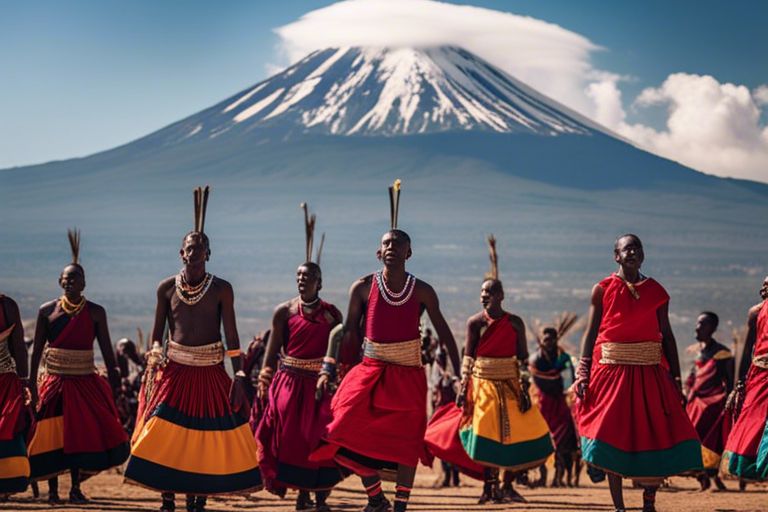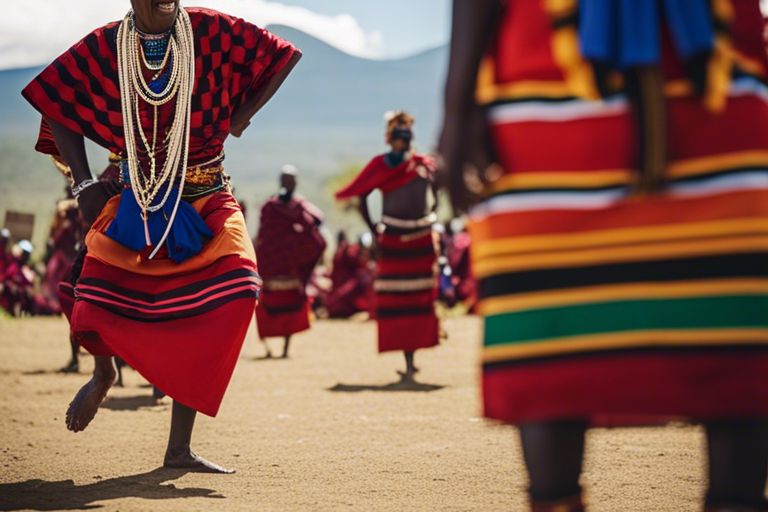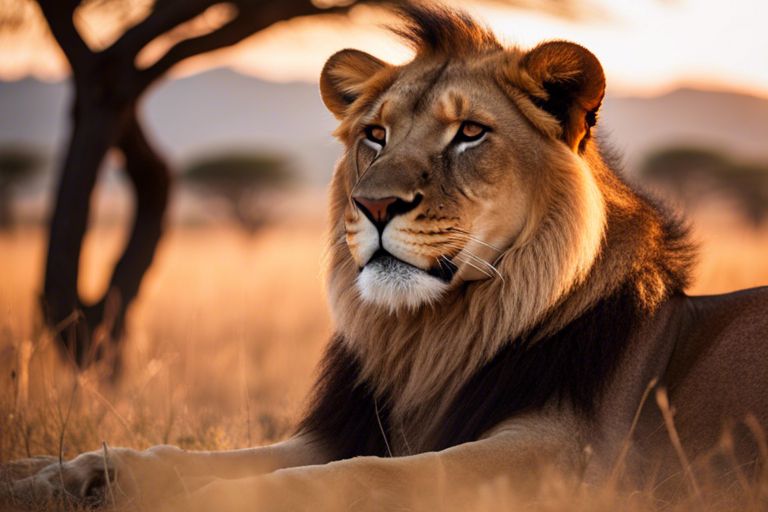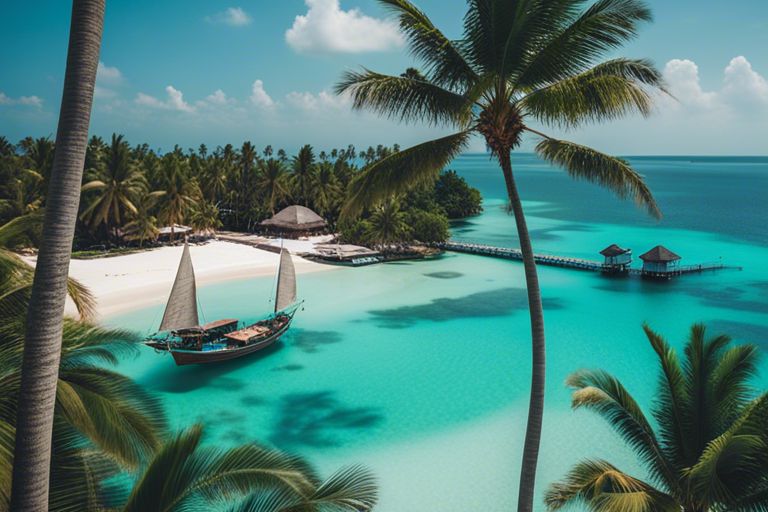Exploring Tanzania's Rich Cultural Heritage – Tribes, Traditions, and Festivals
Step into Tanzania, where a tapestry of diverse tribes, ancient traditions, and vibrant festivals awaits you. Immerse yourself in the rhythmic beats of Maasai dances, savor the aromatic flavors of Swahili cuisine, and witness the colorful celebrations of Kariakoo Carnival. Join me as we explore into the heart of Tanzania’s cultural mosaic, where every encounter unveils a new layer of this captivating heritage.
The Diverse Tribes of Tanzania
As you immerse yourself in Tanzania’s rich cultural tapestry, you’ll encounter a fascinating array of tribes, each with its own distinct traditions and way of life. From the iconic Maasai warriors to the industrious Chagga farmers and the enigmatic Hadzabe hunter-gatherers, the diversity of Tanzania’s tribes is a testament to the country’s vibrant heritage.
The Maasai: A Symbol of African Culture
On your journey through Tanzania, you will undoubtedly come across the Maasai, one of the most famous tribes in Africa. Known for their vibrant red attire, intricate beadwork, and remarkable pastoral lifestyle, the Maasai people have long been a symbol of African culture. As you interact with the Maasai communities, you’ll be captivated by their traditional dances, ancient rituals, and deep connection to the land.
The Chagga: Farmers of the Fertile Slopes
With the majestic Mount Kilimanjaro as their backdrop, the Chagga people are skilled farmers who have mastered the art of cultivating the fertile slopes of the region. Their terraced fields are a testament to their agricultural expertise, providing a lush bounty of fruits, vegetables, and coffee. Immerse yourself in the Chagga way of life as you explore their villages, sample freshly brewed coffee, and witness the breathtaking beauty of their agricultural practices.
Another fascinating aspect of the Chagga culture is their intricate banana beer-making process, a tradition that has been passed down through generations. You’ll have the opportunity to witness this age-old practice firsthand and taste the unique flavors of this traditional brew.
The Hadzabe: Last of the Hunter-Gatherers
Maasai, the Hadzabe are one of the last remaining hunter-gatherer tribes in Tanzania, living a traditional way of life that dates back thousands of years. As you spend time with the Hadzabe community, you’ll gain insight into their unique customs, hunting techniques, and deep spiritual connection to the natural world. Join them on a hunt, learn about their medicinal plants, and listen to ancient folklore passed down through oral tradition.
Tanzania is a treasure trove of cultural diversity, with each tribe offering a unique glimpse into the country’s rich and storied past. Whether you’re mingling with the Maasai warriors, exploring the agricultural practices of the Chagga, or observing the hunter-gatherer lifestyle of the Hadzabe, you’ll be enchanted by the authenticity and resilience of Tanzania’s diverse tribes.
Traditional Practices and Customs
One of the most fascinating aspects of Tanzania’s rich cultural heritage is its traditional practices and customs that have been passed down through generations. These customs are integral to the identity of various tribes in Tanzania and play a significant role in shaping their way of life.
The Importance of Family and Community
One fundamental aspect of traditional Tanzanian culture is the emphasis placed on family and community. In tribal societies, family ties are incredibly strong, and the community as a whole plays a crucial role in supporting its members. Family structures are closely-knit, with extended families often living together or in close proximity, providing a strong support system for individuals.
The Role of Elders in Tribal Society
Importance is placed on the wisdom and guidance of elders in tribal society. Elders are revered for their experience, knowledge, and decision-making abilities. They serve as the custodians of tradition, passing down oral history, cultural practices, and values to the younger generations. Their insights are highly respected, and their counsel is sought in matters of importance to the community.
This reverence for elders fosters a deep sense of respect for tradition and heritage within Tanzanian tribes. Elders serve as mentors and mediators, playing a vital role in resolving conflicts, making important decisions, and preserving the cultural identity of the community.
Unique Wedding Ceremonies and Rites of Passage
The celebration of weddings and rites of passage are significant events in Tanzanian culture. Each tribe has its own unique customs and ceremonies that mark these important milestones in a person’s life. Weddings, for example, are elaborate affairs that involve traditional rituals, dances, and feasting, bringing the community together to celebrate the union of two individuals.
The rites of passage, such as initiation ceremonies for boys and girls, symbolize the transition from childhood to adulthood and are celebrated with great pomp and ceremony. These rites serve not only as a way to mark significant life stages but also to instill important cultural values and traditions in the younger generation.
Rites of passage are often accompanied by rituals that are believed to bestow blessings, protection, and guidance on the individual as they navigate life’s journey. These ceremonies are deeply rooted in tradition and hold immense cultural significance for the tribes of Tanzania.
Vibrant Festivals and Celebrations
For a truly immersive experience into Tanzania’s rich cultural heritage, you must attend some of the vibrant festivals and celebrations that take place throughout the year. These events showcase the diversity and traditions of the various tribes in the country, offering a unique insight into Tanzanian culture.
The Ngoni Festival: A Celebration of Music and Dance
One of the most lively festivals you can attend is the Ngoni Festival, which is a colorful celebration of music and dance. The Ngoni people, who hail from the southern highlands of Tanzania, gather to showcase their traditional dances, music, and storytelling. You will be mesmerized by the rhythmic beats of the drums, the intricate movements of the dancers, and the elaborate costumes worn during the festivities.
The Eid al-Fitr: A Joyous End to Ramadan
On the Islamic calendar, one of the most anticipated celebrations is Eid al-Fitr, marking the end of the holy month of Ramadan. This joyous occasion is observed with prayers, feasting, and giving of gifts to the less fortunate. Families come together to share traditional dishes, exchange presents, and participate in community events. Witnessing the spirit of togetherness and generosity during Eid al-Fitr is truly heartwarming.
Joyous gatherings and festivities fill the streets as people rejoice in the completion of a month of fasting and spiritual reflection. The atmosphere is one of joy and gratitude, as individuals come together to celebrate with their loved ones and offer prayers of thanks.
The Karatu Cultural Festival: A Showcase of Local Talent
Vibrant and colorful, the Karatu Cultural Festival is a must-see event that highlights the talents and traditions of the local tribes in the region. You will have the opportunity to witness traditional music performances, tribal dances, arts and crafts, and taste authentic cuisine. Immerse yourself in the vibrant atmosphere as you interact with the community and learn about their way of life.
Festivities continue throughout the day, with various cultural displays and activities that showcase the rich heritage of the Karatu region. From traditional music performances to ceremonial rituals, the festival offers a unique glimpse into the customs and traditions of the local tribes, providing an unforgettable cultural experience.

The Significance of Traditional Dress
All across Tanzania, traditional dress plays a vital role in preserving and showcasing the rich cultural heritage of the various tribes. When you commence on a Tanzania Cultural Safari Experience, you will witness firsthand the beautiful array of colors, patterns, and designs that adorn the people of this diverse nation.
The Maasai’s Iconic Red Shuka
For the Maasai tribe, the iconic red shuka holds deep cultural significance. This versatile piece of cloth is worn by both men and women and serves multiple functions, from clothing to bedding. The vibrant red color symbolizes bravery, unity, and the distinctive identity of the Maasai people.
The Intricate Beadwork of the Chagga
For the Chagga tribe, intricate beadwork is a hallmark of their traditional dress. Beads are meticulously handcrafted into stunning jewelry and accessories, each design carrying symbolic meanings that reflect the tribe’s values, beliefs, and traditions.
The Chagga people’s beadwork is not only visually stunning but also serves as a form of expression and communication within the community. Each bead color and pattern tells a story, conveying messages about social status, age, and even marital status. The art of beadwork is passed down through generations, preserving the Chagga tribe’s cultural heritage for years to come.
The Hadzabe’s Simple yet Practical Attire
Significance
The Hadzabe tribe, often referred to as the last hunter-gatherers of Tanzania, don simple yet practical attire suited to their nomadic lifestyle. Their clothing consists of animal skins, furs, and natural fibers, providing protection from the elements while allowing for ease of movement during hunting and foraging activities.
Traditional
The Hadzabe’s traditional attire reflects their close connection to nature and their resourceful way of life. By wearing clothing made from materials found in their surroundings, the Hadzabe embody a deep respect for the environment and a sustainable approach to dressing.
Tanzanian Cuisine: A Blend of Flavors
Unlike any other, Tanzanian cuisine is a delightful fusion of flavors influenced by the diversity of cultures and natural resources found in the region. The food in Tanzania reflects the country’s rich history, with traditional dishes that have been passed down through generations.
The Staple Food: Ugali and Its Variations
Any exploration of Tanzanian cuisine would not be complete without mentioning ugali, a maize meal porridge that serves as the staple food for many Tanzanians. This simple dish is usually served with a variety of meats, vegetables, and sauces, and can be found in different variations across the country.
The Spice Route’s Influence on Local Cuisine
Flavors from the Spice Route have also greatly influenced the local cuisine in Tanzania. The use of spices such as cloves, cinnamon, cardamom, and chili peppers adds depth and complexity to dishes, creating a unique taste that is both aromatic and flavorful.
Tanzanian dishes often feature a mix of sweet, savory, and spicy flavors, creating a sensory experience that is sure to tantalize your taste buds.
Traditional Cooking Methods and Recipes
An understanding of traditional cooking methods and recipes is important to truly appreciate the depth of Tanzanian cuisine. Cooking techniques such as slow simmering, grilling over an open flame, and steaming in banana leaves are commonly used to prepare dishes that are full of flavor and texture.
By immersing yourself in the culinary traditions of Tanzania, you can discover the intricate balance of flavors that make this cuisine truly special.
Preserving Cultural Heritage for Future Generations
Efforts to Document and Record Tribal Histories
Keep in mind that preserving the cultural heritage of Tanzania is crucial for future generations. Any efforts to document and record tribal histories play a significant role in ensuring that the traditions, languages, rituals, and beliefs of each tribe are accurately captured and preserved. This documentation serves as a valuable resource for researchers, historians, and community members alike, helping to safeguard the unique identities of Tanzania’s diverse tribes.
Initiatives to Promote Cultural Exchange and Understanding
Initiatives aimed at promoting cultural exchange and understanding are vital in bridging the gaps between different tribes and communities in Tanzania. By organizing cultural events, festivals, and workshops that encourage interaction and dialogue among people from various backgrounds, these initiatives help foster a sense of unity and respect for the diverse traditions that make up Tanzania’s rich cultural tapestry.
Historical and contemporary exchanges between tribes not only enrich the cultural landscape but also contribute to fostering mutual understanding and appreciation among different communities. These initiatives create opportunities for individuals to learn from one another, celebrate diversity, and strengthen the bonds that unite Tanzanians across tribal lines.
The Role of Education in Preserving Traditional Practices
Cultural education plays a pivotal role in preserving traditional practices within Tanzania. By integrating cultural heritage into the national curriculum, schools and educational institutions can ensure that younger generations learn about and value the unique customs, rituals, and histories of their respective tribes. This educational approach not only helps preserve traditional knowledge but also instills a sense of pride and identity in students, fostering a deeper connection to their cultural roots.
Conclusion
Now that you have journeyed through Tanzania’s rich cultural tapestry, exploring the diverse tribes, traditions, and colorful festivals that make up this vibrant country, you have gained a deeper appreciation for its heritage. The Maasai, Chagga, and Sukuma people each contribute their unique customs and way of life, painting a mosaic of traditions that have withstood the test of time.
As you reflect on the beauty of Tanzania’s cultural heritage, you might find yourself eager to experience it firsthand. Whether you are drawn to the rhythmic beats of the Gogo drummers, the graceful movements of the Makonde dancers, or the spiritual practices of the Hadzabe hunters, there is something magical waiting to be discovered in every corner of this enchanting country. So pack your bags, set off on an adventure, and immerse yourself in the rich cultural tapestry of Tanzania.







